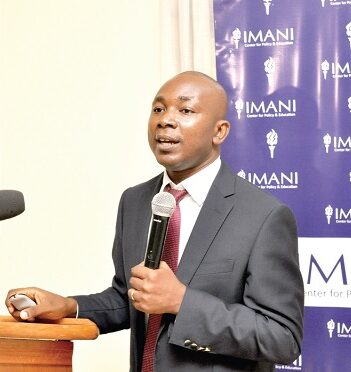Recent fiscal and monetary measures announced by managers of the economy to rein-in the downturn are far from adequate long-term solutions, as structural inefficiencies remain across the ‘value-chain’ of the economy.
This is according to economist and professor of Finance at the University of Ghana Business School (UGBS), Prof. Godfred Bokpin, who argues that the cyclical nature of Ghana’s visits to the International Monetary Fund (IMF) for a bailout – 16 times since 1965, translating to an average of once every 3.5 years – highlights deep-rooted problems that must be addressed urgently.
Failure to do so, he added, will make the periodic trip to the Bretton Woods institution inevitable, as the “economic realities will always prove stronger than any political resistance”.
He said this during a roundtable discussion organised by policy think-tank, Institute of Economic Affairs (IEA), on the subject ‘Ghana’s Current Economic Crisis: Is it time to go to the IMF or is there an Alternative way out?’
“Strictly following the data, the time is ripe for a return to the IMF. The question, really, is can we keep doing the same old things and expecting different results?” he asked.
A perusal of the factors which led the country to the IMF for the first time, eight years after attaining independence, sees highly unsustainable public debt, rising inflation, weak revenue mobilisation and balance of payment problems featuring high up the list. The same factors characterised the last visit in 2015, and similar ones are evident currently.
“Our reserves declined from US$269million in 1957 to negative US$391million in 1965, with inflation ballooning from 0.98 percent in 1964 to 26.4 percent in 1965. It was the same in 2015 – and how different is it now?” Prof. Bokpin said.
“If we stick to doing the same things, we will either go to the IMF walking or driving ourselves there, or we call an ambulance,” he added.
Despite highlighting some benefits of going to the Fund, particularly policy credibility, Prof. Bokpin reiterated calls for adopting home-grown measures similar to those likely to be prescribed by the IMF.
Describing the recently outlined measures as “a positive step but fiscally dwarfed and anti-reform,” he said they do not offer a credible path toward fiscal sustainability going forward.
Chief among his recommendations is a speedy review of the tax exemptions regime and passage of necessary legislation, which it is estimated would save the state as much as GH¢15 to GH¢25billion annually – 3-5 percent of Gross Domestic Product (GDP), as well as an aggressive pursuit of property tax.
Other measures include improving compliance and efficiency for all existing tax handles, with particular emphasis on closing gaps at the compliance level and permanent cost-cutting measures.










